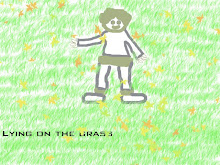Berber Women Summary
Whilst presenting my keynote presentation on Berber women, I will be talking and explaining to you about the lives of the Berber women, their clothes, work, marriage, education, health, leisure activities – and most importantly, how old traditions of Berber women are slowly fading while western traditions are dominating the looks, behavior and lifestyle of these women. I will also be talking about why or why not this culture should be preserved.
Today, in the 21st century Berber women enjoy more freedom. They often leave their Berber villages to live in big cities, in a more westernized culture leaving behind their old traditions. At the end of this presentation I will be talking about if this culture should be preserved, hopefully by the end you will have a vague idea of why or why not it should be kept, but that choice is up to you. Now, some Berber women still live the traditional way. They either do not have the money and resources to live a modern life, or they simply want to live their way. For most of the rest of the presentation I will talk about the lives of these women that chose to live the old way.
Traditional Berber women wore kaftans, veils (also known as head scarves), jewelry and henna – a plant that is used to dye the skin and it is said that it keeps away bad luck. Jewelry is mostly made of silver and is always large and bulky because large pieces of jewelry show that you are wealthy.
Berber women need to work very hard to support their families. The men are out herding flocks of sheep or goat for most of the time so women have to guard the village as well. Their work includes planting and harvesting crops, taking care of the children and elderly. Their workday is often extended and harsh.
As for health, If any there are barely any doctors near remote Berber villages. Dirty water, poor sanitation and malnutrition are very common problems Berbers face. Many newborn babies also die because of poor sanitation during birth. Berber women often spent their free time chatting with relatives or playing with children. They do not usually have lots of free time.
I think we should do all in our power to try to preserve this culture, because it's a very rich one, and it's an important part of the identity of the Berber people, so if the culture of these people is gone, they would lose their identity as well - they would not be who they actually are.
